Fruits and vegetables are an essential part of guinea pigs’ food regimen. But, there are some foods that are absolutely forbidden for guinea pigs. There are also some foods that can be given to guinea pigs but are harmful if given in excess.
What can’t guinea pigs eat? Guinea pigs are plant-eating animals and food such as meat, dairy products, and sweets need to be off of your list for their diet. Furthermore, there are foods guinea pigs can eat but only in moderation and small serving sizes. If you give them those foods in excess, they can cause health problems.
Guinea pigs are neophobic, which means that once they start eating something, they do not want to try anything else. So, it is even more important to feed them a variety of food in the early stages of their development.
In the following section, we’ll give to you a full list of foods not to feed guinea pigs and also foods that you can give to guinea pigs in moderation and a lot of supervision. Let’s begin!
Table of Content
Foods Not to Give Guinea Pigs | Detailed List
As we have mentioned, any type of meat, dairy products, and sweets are totally forbidden for guinea pigs. That means those foods aren’t recommended for giving to guinea pigs even in small amounts or in moderation.
This is a list of unsafe foods for guinea pigs that you need to avoid completely:
A Full List of Dangerous Foods for Guinea Pigs
1. Meat
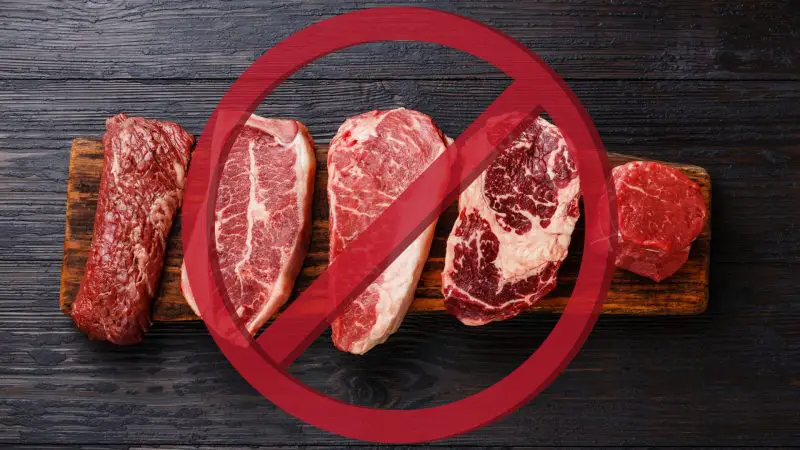
Don’t give any type of meat to guinea pigs. They are herbivores and they eat only plants. So, the meat could produce some serious problems to the guinea pig’s digestive system.
2. Dairy Products
As mentioned before, guinea pigs can only digest plant-based food. So, dairy products like milk, yogurt, curd, cheese, and cream cheese should not be fed to them because those products can cause stomach problems in guinea pigs. For example, diarrhea.
3. Avocado
Guinea pigs may like the taste of it, but avocados should not be given to your guinea pigs. They have a very high-fat content. Even if you want your guinea pig to gain some weight, avocado is not a suitable option.
4. Oats
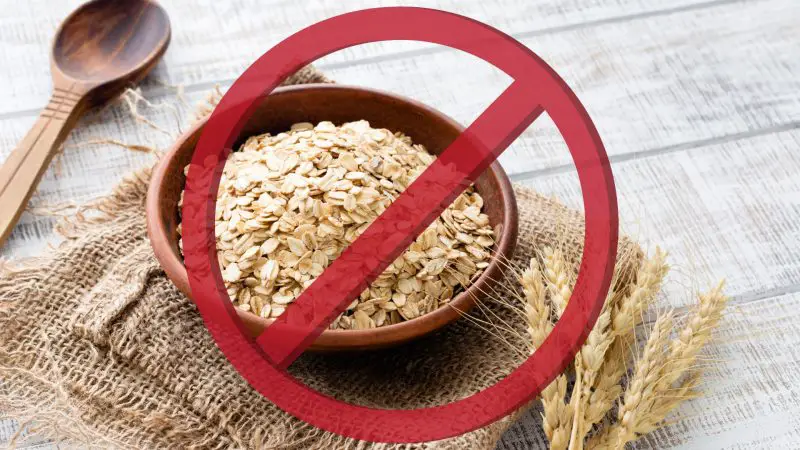
Oats have carbohydrates that break down quickly into sugars in the digestive tract. This is simply not a food that is intended for guinea pigs.
5. Whiskey or Any Other Alcohol
Guinea pig is a brittle animal and does not tolerate whiskey or any other alcohol. So, it is highly advisable to not even put a drop of alcohol in their mouth because it can do serious damage to the guinea pig’s health.
6. Seeds
Guinea pigs should not have seeds at all. The following are just some of the reasons why they are terrible food for guinea pigs:
- Seeds are high in fat content. Also, they can choke your pet. Guinea pigs are plant-eating animals and usually like to rely on soft things. Seeds are not suitable for them even if the seed products.
- Seeds also have sugars and starches which can cause a change in digestive bacteria, intestinal complications, and obesity. Guinea pigs do not have self-control when it comes to eating, so it is our responsibility to keep them healthy.
- Soft seeds like those found naturally in peppers, cucumber and tomatoes are safe. On the other hand, guinea pigs can choke on the seeds from apples, watermelons, and oranges. This is why they need to be removed.
7. Some Vegetables
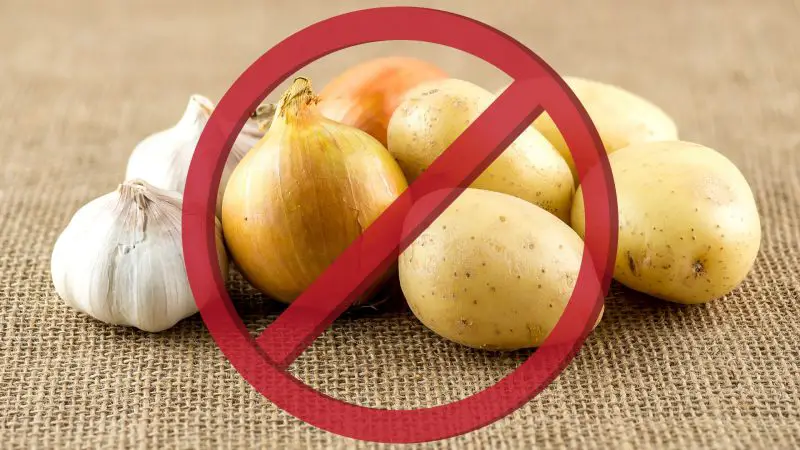
There are also certain vegetables that aren’t good for guinea pigs:
- Rhubarb – It is toxic to guinea pigs. Avoid giving it to them even in moderation because it is rich in oxalic acid.
- Onions and garlic – It can make their stomach bloat. Guinea pigs do not have any way to let that extra gas out of their body, unlike human beings. Onions can also lead to blood disorders.
- Icebergs lettuce – It isn’t toxic, but don’t give it to guinea pigs because it can cause them some health issues. It doesn’t have any nutritional value for guinea pigs and only can cause bloating or gas and diarrhea.
- Potatoes – These are toxic to guinea pigs. They are also rich in carbohydrates and calcium, so guinea pigs shouldn’t eat them even from a nutritional standpoint.
- Leeks and chives – It fall in the category of onions and can cause blood disorders, so don’t give them to guinea pigs.
- Jalapenos – These aren’t good for guinea pigs because they’re very spicy. They can cause problems for guinea pig’s stomach and digestive system.
- Runner beans – These are poisonous for guinea pigs.
- Ginger – It is not recommended for guinea pigs because of calcium and sugar content.
8. Multivitamins | Supplements
Generally, multivitamins should not be given to guinea pigs as they can lead to an excess of vitamins and minerals which is harmful to guinea pigs. It is better to consult the vet before you feed guinea pigs any multivitamin supplements.
9. Commercial Rabbit Food
The commercial rabbit foods are not good for guinea pigs because they are low in vitamin C, high in vitamin D. They also contain drugs to prevent coccidiosis, which can make guinea pigs extremely ill.
10. Chocolates
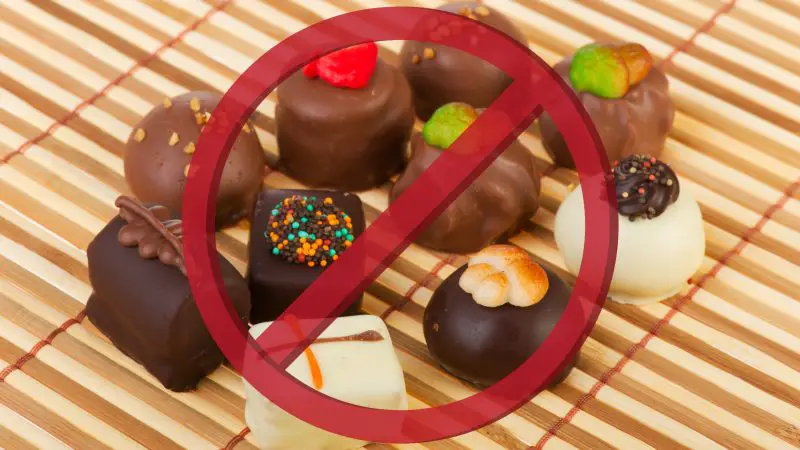
Chocolates have high levels of sugar, more than any other food item. These are also high in fats and carbohydrates. Make sure your kid is not feeding guinea pigs with chocolate.
11. Herbs
While herbs can be a significant source of essential minerals, there is a long list of herbs that are toxic to guinea pigs: Acacia, Aconite, Beech, Bindweed, Buttercups, Celandine, Cherry Trees, Clematis, Columbine, Daffodils, Daisies, Deadly Nightshade, Acanthus, Agave, Arum, Autumn Crocus, Belladonna, Boxwood, Broom, Buddleia, Christmas Rose, Cyclamen, Datura, Elder, Ferns, Geraniums, Holly, Honeysuckle, Ivy, Juniper, Laburnum, Lilly, Lilly of Valley, Lupine, Monkshood, Oleander, Primrose, Snowdrop, Thimble, Tree of life, Windflower and Yews.
12. Oak
Oak plants are poisonous to guinea pigs. It can cause diarrhea, extreme pain in the abdomen and loss of interest in eating which can lead to death.
13. Bread
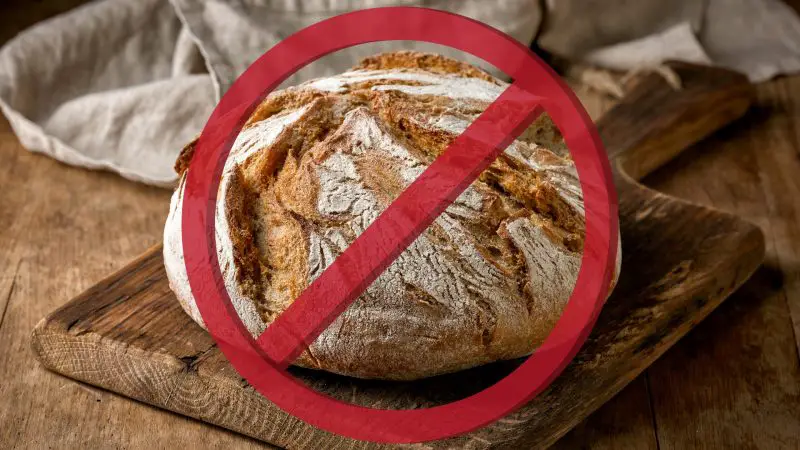
Guinea pigs shouldn’t eat bread as it is made out of grains. Bread is high in fat, sugars and carbohydrates which can make your guinea pig fat. Bread also consists of preservatives that are not good for guinea pigs’ health. Also, guinea pigs can even choke on bread as it is sticky.
14. Coffee
Guinea pigs can’t drink coffee. Coffee contains caffeine which can disturb their sleeping cycle, making them exhausted and tired. Also, some studies have proved that caffeine may cause some problems with hearing loss in guinea pigs.
15. Salt
Many vegetables already have salts and minerals. Therefore, if you are giving your guinea pigs balanced diets, salt is not necessary. Excess salt can lead to bladder stones in guinea pigs.
16. Sweets
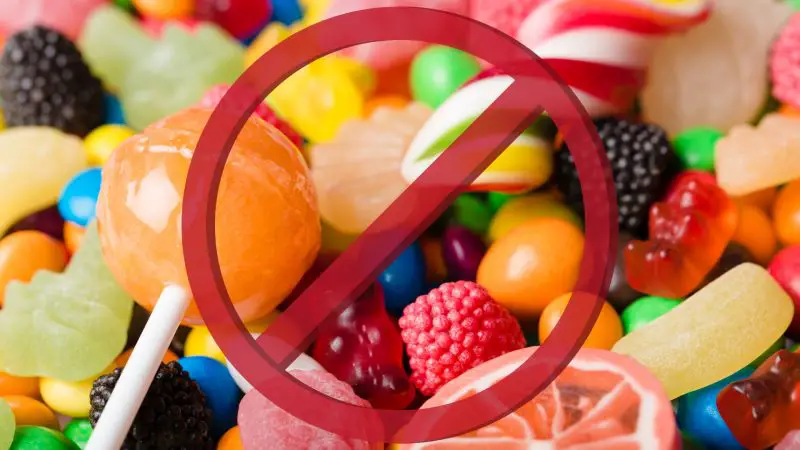
Again, any type of sweet food is harmful to guinea pigs. Sugar can cause serious health problems such as blindness, diabetes, weight gain, and indigestion. Human beings also tend to experience reduced eyesight when suffering from diabetes.
17. Cereals
Cereal grains should not be given to guinea pigs due to the high content of sugar and carbohydrates. They can also cause a choking hazard. Though cereal based products like corn flakes can be fed to guinea pigs, it should be done once in a month.
18. Pickles
Pickles contain vinegar which can cause irritation and other skin related problems in guinea pigs. Pickles can also cause digestive problems. Any pickled or brined vegetables, including canned olives and similar food, should be avoided.
19. Raisins
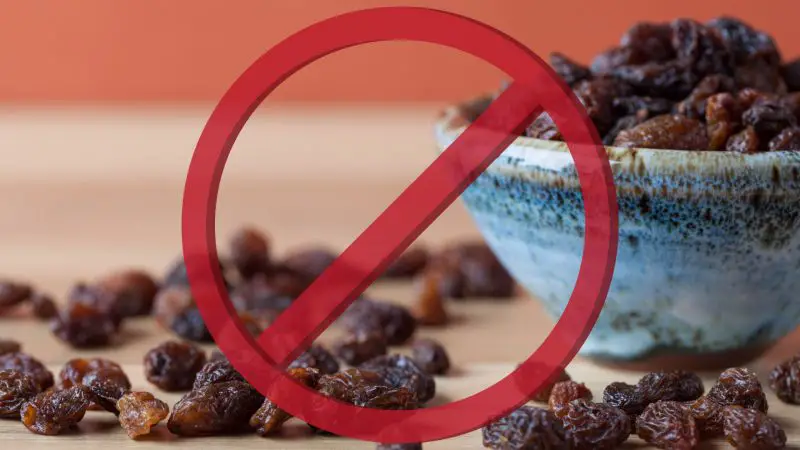
Though raisins cannot choke your guinea pig, they contain a lot of sugar and added preservatives. So, it is better not to feed them to your guinea pig.
20. Coconut
Coconut isn’t good for guinea pigs and you shouldn’t give it to them. It is high in fat and its nutritional content can lead to atherosclerosis and liver damage in guinea pigs.
21. Cooked Food
Guinea pigs are herbivores animals and they prefer to eat their food raw. Cooked food tends to have less nutritional value and can do damage to the guinea pig’s digestive system. Other than that, guinea pigs have teeth that are always growing in size. It is crucial for them to chew on hard food to wear out their teeth.
22. Mushrooms
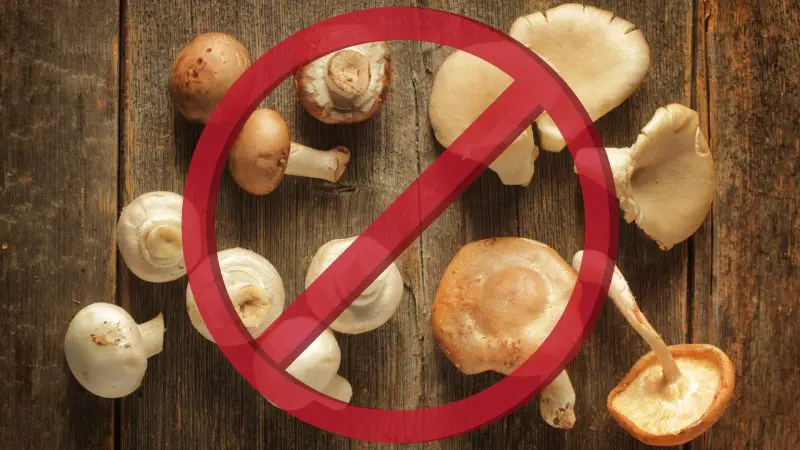
Guinea pigs should not eat any type of wild mushrooms because there are many mushrooms that are poisonous. They can be fed with cultivated mushrooms, but they do not have any nutritional value for guinea pigs. So, it is best to avoid feeding them mushrooms and give them something else with better nutritional values.
23. Hostas
Hostas are toxic to most animals. It is better not to take a risk with your guinea pigs.
24. Rice
Rice cannot be fed to guinea pigs because rice is grainy and that isn’t good for them. Also, cooked rice is a bad solution because guinea pigs cannot eat cooked food.
25. Junk Food
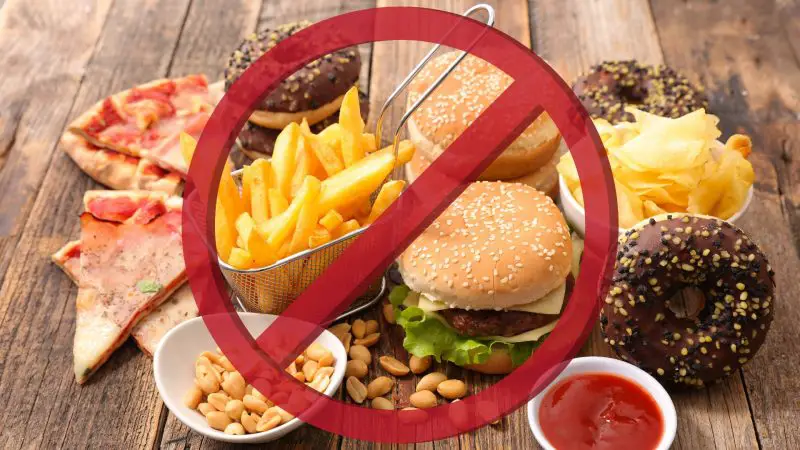
Most junk food is rich in fats and carbohydrates. Feeding them junk food can cause excessive weight gain and various health problems as well.
26. Nuts
Nuts have a high level of fats and that can lead to weight gain causing many other obesity-related problems. So, don’t give guinea pigs any type of nuts, such as walnuts, peanuts, and others.
27. Plants Treated With Pesticides
Any food that you feed your guinea pig must be washed thoroughly. Unwashed fruits, vegetables, and other plants can contain pesticides on their surface can be detrimental for the health of your pet.
28. Food Meant for Other Animals
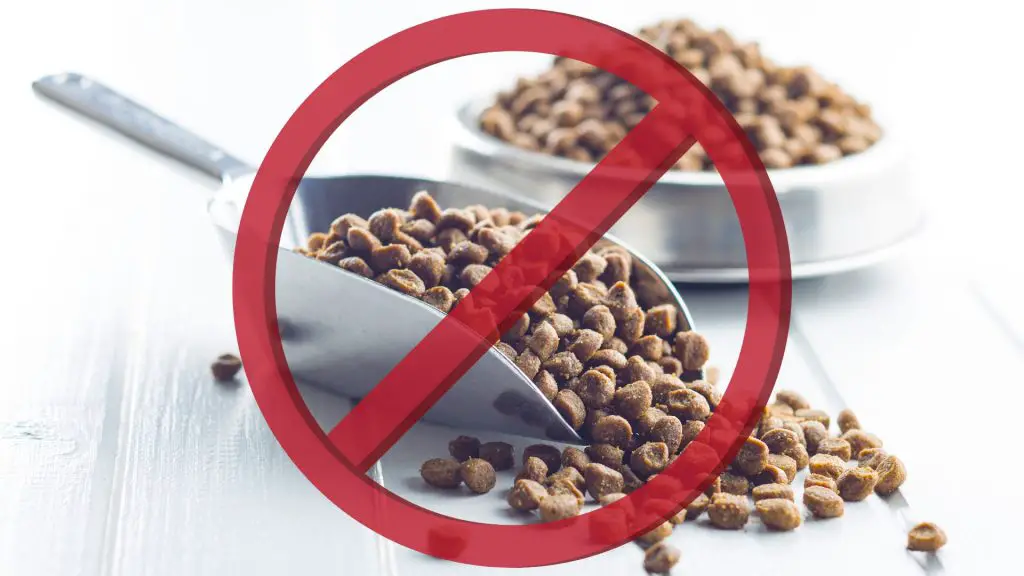
Do not ever feed food meant for other animals to guinea pigs without consulting your vet. All animals have different nutritional requirements and the ability to digest only specific food.
Since both hamsters and guinea pigs fall under the category of rodents, people tend to feed them the same food which is wrong. Hamsters are omnivores, while guinea pigs are herbivores, which makes their nutritional requirements different.
29. Popcorn
Guinea pigs cannot eat popcorns. They contain salts and can be a choking hazard.
30. Spicy Food
Guinea pigs should not be fed spicy foods like chilies or hot pepper. Mild bell peppers can be given in a lesser amount. Spicy food can cause them pain in the stomach and they don’t know how to deal with it.
31. Tea
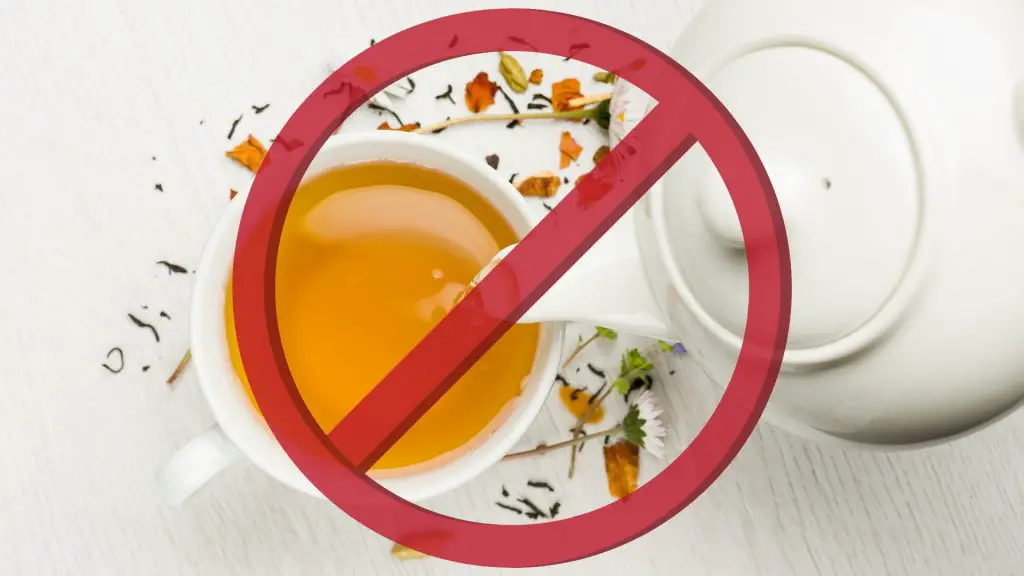
You shouldn’t give tea to your guinea pigs because it can contain some herbs and caffeine. All of that isn’t good for guinea pig’s health and digestive system.
32. Stale Food
Do not feed stale food to your guinea pigs. It is better to buy small bags of food for them so that the food remains fresh. Also, make sure to clean the old food kept in the cage, as old and dirty food can cause health problems.
33. Dates
Dates contain too much sugar for guinea pigs. Also, it doesn’t contain any other nutritions that have benefits for guinea pigs.
34. Other Commercial Foods
Foods like pasta, chips, tortillas, toast, honey, ice cream, french fries, eggs, and crackers that are made for humans aren’t good for guinea pigs and should be avoided.
Foods That Guinea Pigs Can’t Eat Very Often
There are also foods that guinea pigs cannot eat in large serving sizes or very often. So, be careful when feeding guinea pigs with these following foods:
1. Fruits
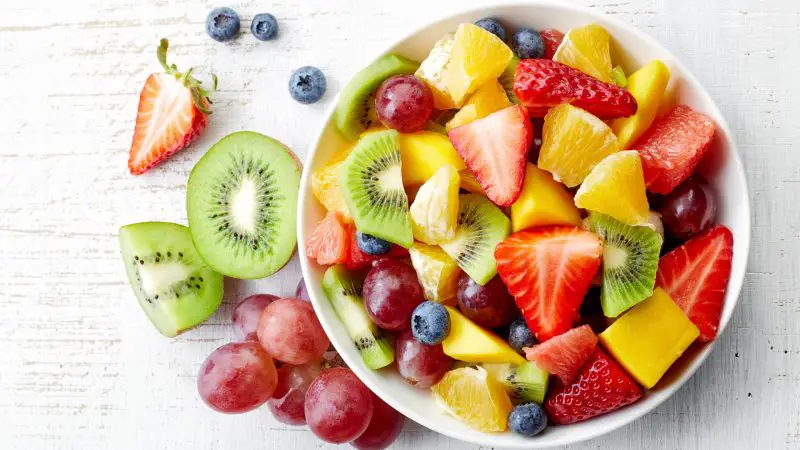
Fruits that are rich in sugars and carbohydrates should be given in moderate amounts and not really that often.
- Stone fruits like apricot, peaches, and plums need to be fed to guinea pigs in moderation because stone fruits contain cyanide and are rich in sugars which aren’t good for guinea pigs.
- All kinds of exotic fruits like papaya, mango, tangerines, and others need to be given to guinea pigs in small amounts and not every day. Everyday consumption can cause serious digestion related problems and severe pain in the abdomen caused by an obstruction in the gut.
- Banana needs to be fed in small amounts because it can cause constipation if overfed. It is highly advisable to not feed it to your guinea pig if he has diabetes.
- Pears can cause diarrhea. Since it is also rich in sugars, it is not suitable for guinea pigs suffering from diabetes. Be very careful with the serving sizes.
- Watermelons should also be fed keeping the serving size in check to avoid the consumption of too much sugar.
- Dragon fruit should be fed only 2-3 times a week in small portions. It is high in sugar and calcium which is not good for guinea pigs.
- Also, fruits like cherries, apples, rose hip, raspberries, strawberries, pineapple, figs, blueberries and others need to be fed in moderation to keep the consumption of sugar in check.
2. Some Vegetables
Although guinea pigs are plant-eating animals, there are some vegetables which they might not like that much.
- While tomatoes can be fed to a guinea pig, tomato leaves and stalks are toxic to them.
- Green beans are usually good for health. But if fed in excess, they can lead to the formation of urine stones as legumes are rich in calcium.
- Asparagus is highly diuretic. It contains a lot of calcium that causes kidney stones and should be fed rarely, which means once or twice a week.
- Spinach contains oxalic acid and calcium so it should not be given often.
- Broccoli is rich in vitamin B5, A, and C but it contains also oxalates that cause stomach disorders (gas) in guinea pigs. So, it should be fed to guinea pigs in small serving sizes.
- Carrots which are a good source of nutrition for guinea pigs (vitamins and minerals) can lead to the coloration of their urine. Carrots also have high sugar content, so it is advisable to feed them with carrots only two times a week and in small amounts.
- Peppers, swede, and turnips need to be given in moderation because of sugar and oxalic acid content.
- Radishes are high in sodium and calcium, so it’s better not to give them to guinea pigs very often.
3. Vitamin C Supplements
It is one of the essential elements of the guinea pig diet, but it is better to fulfill that requirement in the form of a diet that has vitamin C in it. Supplements are not necessary when your guinea pigs have a proper and balanced diet.
4. Beet Green Leaves
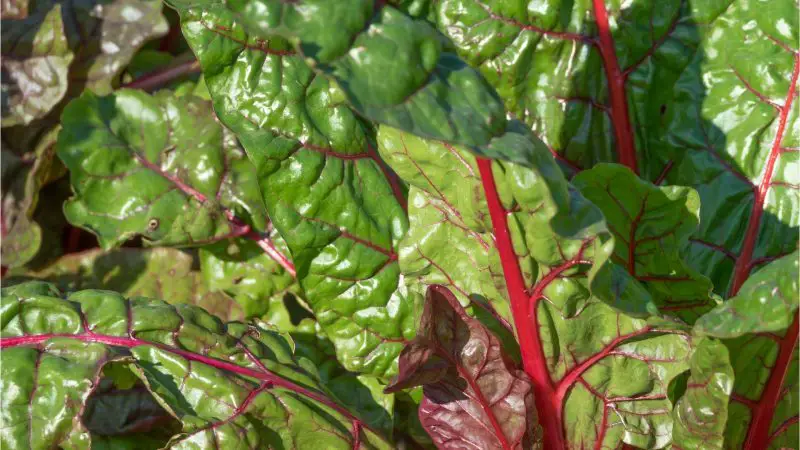
These leaves have a high content of calcium and oxalates which can cause bladder stones and indigestion, so make sure to feed them in moderation.
5. Alfalfa Hay
This type of hay has a high calcium content and it is rich in protein. Therefore, they are not ideal for adult guinea pigs. Alfalfa hay is good for baby guinea pigs, but adult guinea pigs can be fed with alfalfa hay only occasionally.
6. Juice
It is better to give only water to your guinea pigs as juice contains high levels of sugar which is not good for the health of your guinea pigs. You can only give them a small amount of homemade juice from fresh fruits if guinea pigs need more vitamin C.
7. Parsley
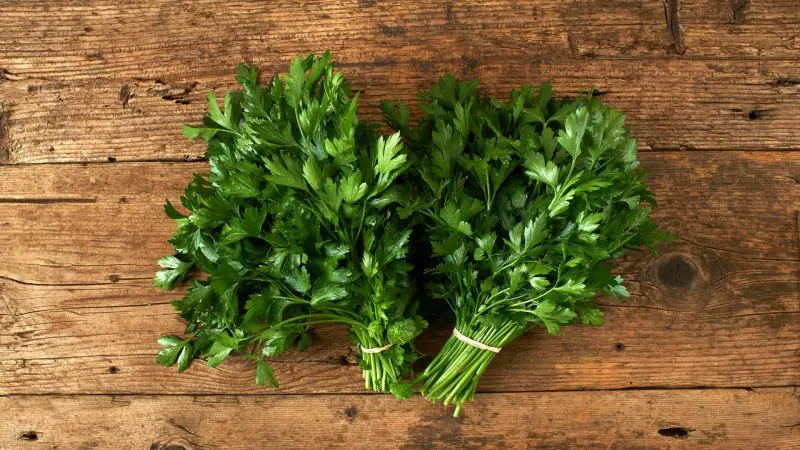
Parsley is considered to be good for guinea pigs, but it contains high calcium and oxalate content. Therefore, it is better to keep the quantity in check. Maybe once or twice a week, give them a small amount of parsley.
8. Celery
Celery is good food for guinea pigs. However, you can only give it to guinea pigs by cutting it into small pieces and only a few times per week because of the amount of oxalates and sodium it contains.
9. Herbs
Herbs like oregano, rosemary, mint, and basil need to be given in moderation because of the high amount of calcium they contain.
Summary
In order to be a good owner to your little pet, it’s very important to know what can guinea pigs eat and not eat. They are very sensitive animals and you need to be sure about what foods are toxic to guinea pigs so that you can avoid having them in their diet.
When the wrong type of food is given to your guinea pigs, it can cause severe problems and can be a very painful experience for your pet, which in the end can even lead to death.
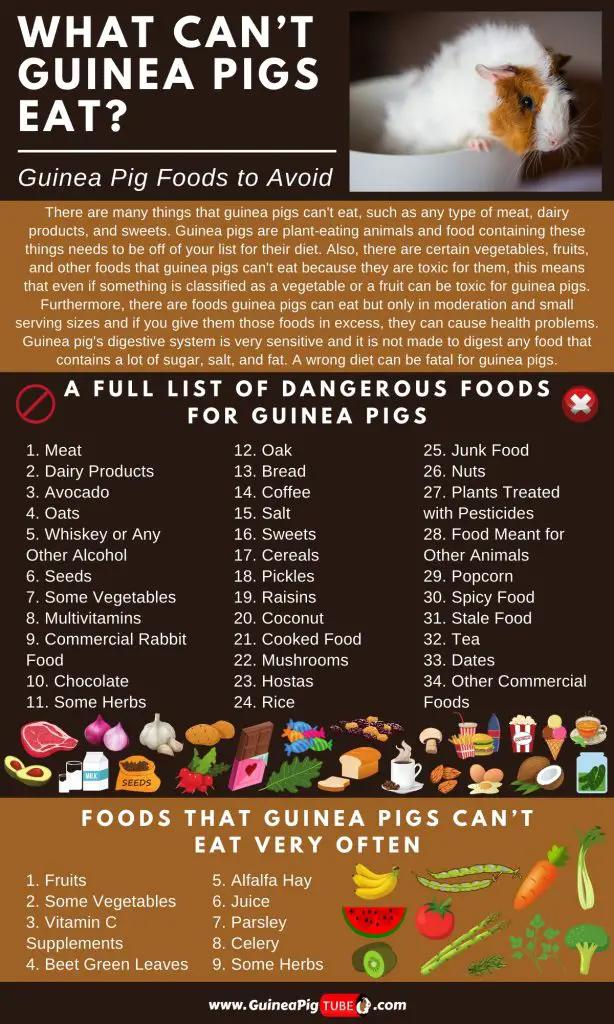
List of Sources
Vitamin C Requirements of the Guinea-Pig
Diet Composition and Mineral Balance in Guinea Pigs
Dietary Requirements of the Guinea Pig With Reference to the Need for a Special Factor
The Effects of Diet on Anatomy, Physiology and Health in the Guinea Pig
